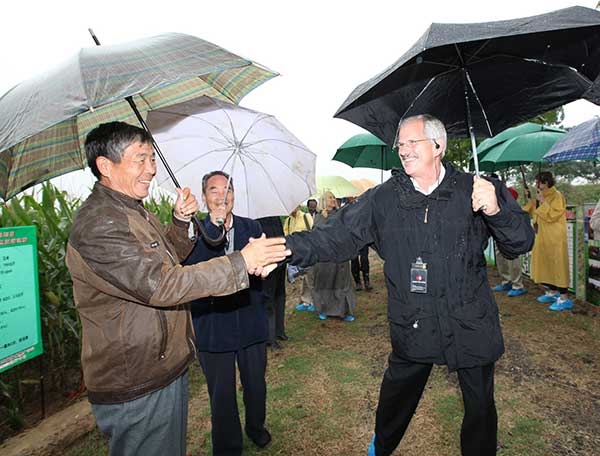
Daniel Dudek, an American environmental expert, says China is making steady progress with policies
Daniel Dudek believes the market can be used to solve environmental problems. And, at a time when China's top leadership is talking about an ecological civilization, his idea resonates here.
"By now I have no doubt what is going to happen, it's really the question of details," the 69-year-old vice-president of the Environmental Defense Fund, a New York-based nonprofit, says of China's green transformation in the future.
Dudek has devoted himself to environmental work for more than 40 years. In 1979, he earned a PhD in agricultural economics from University of California, and worked in the U.S. Department of Agriculture, among other places before joining EDF as a senior economist in 1986, to "bridge the gap between theory and practice".
Dudek specializes in the reduction and control of atmospheric pollutants through the use of markets to control emissions from stationary and mobile sources.
In the past he has been involved with important campaigns such as the creation of tradeable production entitlements for chlorofluorocarbons in compliance with the Montreal Protocol, an international treaty designed to protect the ozone layer by phasing out the production of some substances that are responsible for depletion of the gas cover around the Earth.
Since the 1990s, Dudek and his organization cooperated with the then China's National Environmental Protection Agency and successfully carried out a trial emission trading system in seven locations in China.
His organization has had close partnerships with other central government agencies, such as the National Development and Reform Commission, and regional governments.
"We try to help bring some of the lessons we've learned internationally to China and see how they can be productively deployed and developed with Chinese characteristics," Dudek says during a recent visit to Beijing.
"We really want to see the national carbon market successfully introduced and thrive, and become an important factor for the green transformation in China."
During the 2010 Shanghai Expo, the EDF developed rechargeable subway cards to bring the concept of carbon emission trading to ordinary Chinese.
Each card had a number that matched one ton of carbon traded at an exchange in Shanghai.
By buying the card, people spent money to erase carbon footprints they made visiting the expo.
During his visits to China in the past few years, Dudek has been to practically every province, trying out all kinds of transportation.
He describes his life in China as "going from one hotel to another and waking up in a different bed every morning".
He says he has witnessed positive changes in China's environmental protection programs, in terms of the government's involvement, laws and policies, within a relatively short span of time.
The status of relevant government agencies are upgraded continuously.
For example, the National Environmental Protection Agency of the 1990s was changed to the State Environmental Protection Administration, and then to a full-fledged Ministry of Environmental Protection.


















































